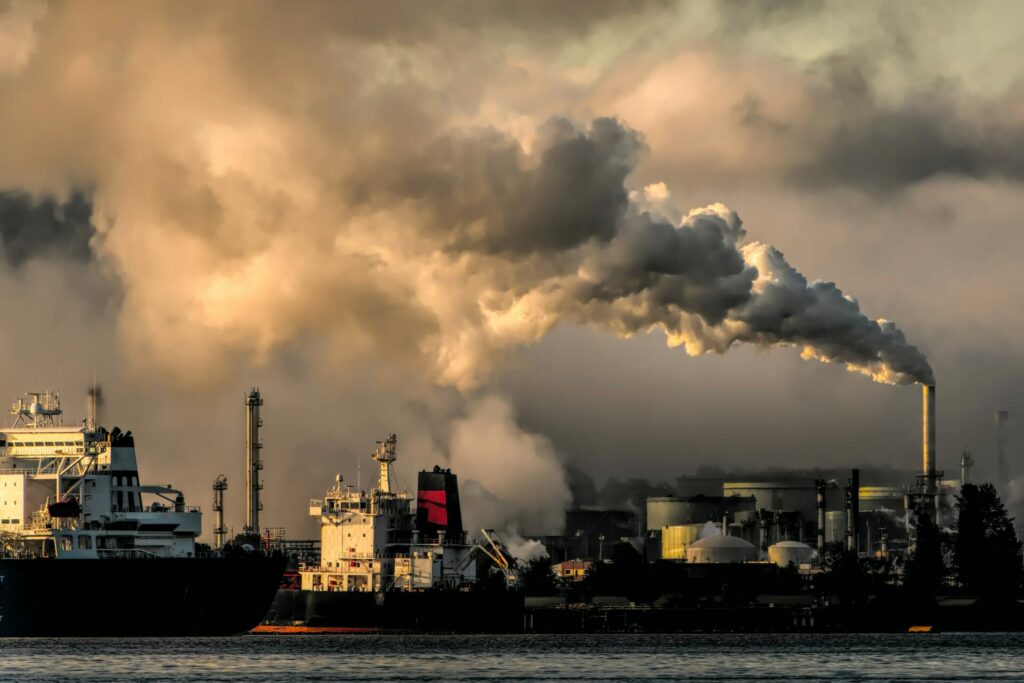As gas prices experience a notable dip, industry experts are forecasting a potential decrease in the average price per tonne of CO2 traded within the European Union in the coming year. Could this downturn offer manufacturers an opportunity to shield themselves against future cost escalations?
Across Europe, the arrival of winter has been sluggish, with temperatures comfortably above freezing, a situation welcomed by the industry. While natural gas supply chains have undergone restructuring since the recent energy crisis, the delicate balance between supply and demand persists, with prices susceptible to even minor disruptions. Despite gas reserves nearing 90% capacity and the absence of extreme cold, prices continue to slide, at least for the time being.
The cost of carbon
Adding an unseen benefit to these developments, several analysts are now projecting that the downward trajectory in gas prices may be mirrored by a decline in the price of CO2.
Brieuc de Thier, a trader at Vertis Environmental Finance specialising in the carbon market, told L'Echo that conditions are ripe for a slight reduction in the average price per tonne of CO2 traded in the European market in 2024. Despite the bullish nature of the market, de Thier told the newspaper that he anticipates a reversal in the historical uptrend over the next year.
Although CO2 prices experienced a significant surge at the end of December, a downward correction had been noted in the last quarter, attributed in part to short positions taken by speculators anticipating a future price decline. This speculation is grounded in the strong correlation between CO2 and gas prices. De Thier predicts that in 2024, speculators will continue to bet on this correlation, and if gas prices continue to decline, CO2 prices are likely to follow suit.
Related News
- 2023 in inflation: What saw the biggest price increases?
- Anticipated ECB rate cuts drive Belgian bonds to year-long low
However, the fundamental principle of the Emissions Trading Mechanism is an increase in prices year by year as the supply of pollution permits decreases over time. Despite this, 2024 is expected to be a unique year. To fund its REPowerEU plan, designed to wean the EU off Russian energy supplies, Europe plans to generate €20 billion from the sale of emission allowances. Consequently, part of the volumes slated for auction between 2027 and 2029 will be auctioned as early as 2024. Additionally, the maritime transport sector's integration into the system in 2024 will introduce new specific quotas to the market, resulting in approximately 16% more quotas in 2024 compared to 2023.
While the predicted downward trend may provide a window of opportunity in 2024, analysts caution that this situation will be short-lived. The cap on auctioned allowances will decrease more sharply from 2024, with an annual decrease of 4.3%, compared to the previous 2.2%. Moreover, allowances allocated free of charge will experience a drastic reduction from 2026. Analysts predict that the €100 per tonne mark will likely be surpassed well before 2030 (the average price in 2023 was €83 per tonne).
'We still have a structual handicap'
The question arises: Is 2024 an opportune time to stock up on quotas, provided there is sufficient liquidity?
Speaking to the L'Echo, Peter Claes, the director of Febeliec, the Belgian federation of large energy consumers, said: "With industrial demand declining, it is clear that there will be no quota shortages in 2024, potentially leading to a drop in CO2 prices. Everyone decides on their strategy according to their needs, but there will undoubtedly be a great deal of interest in sourcing allowances next year."
Furthermore, when considering the confluence of falling CO2 and gas prices, along with the anticipated decline in interest rates and inflation, a boost in Europe's competitiveness on the global stage may be on the horizon.
However, Peter Claes advises caution: "Admittedly, energy prices are falling faster than expected, and industrial demand is declining, but be careful, we still have a structural handicap in terms of prices."

